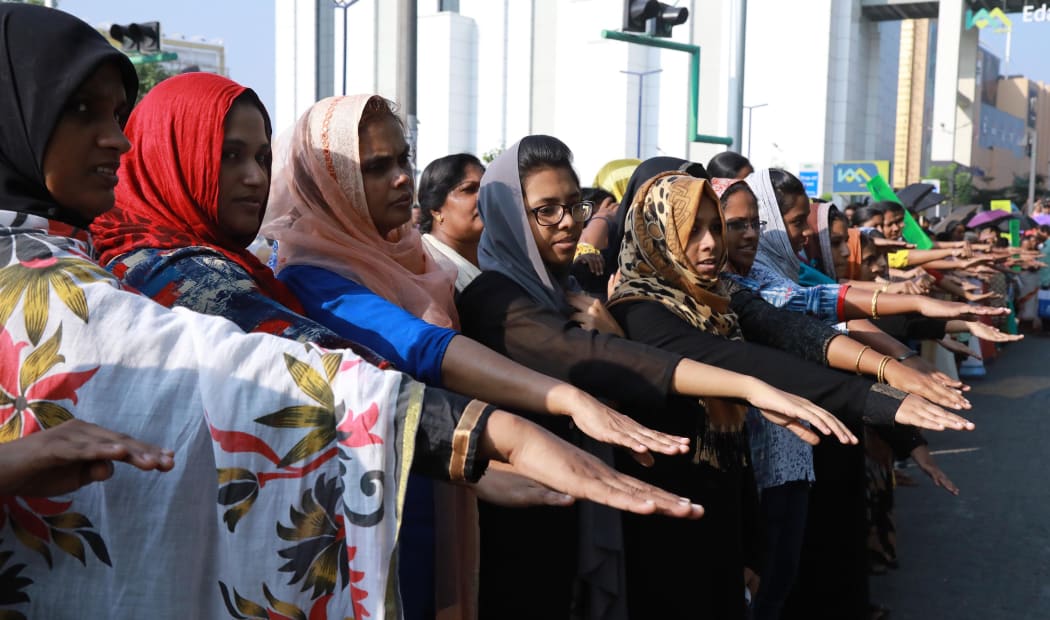Women in the southern Indian state of Kerala have formed a 620km human chain "in support of gender equality", amid a row over access to a prominent Hindu temple.

Indian women hold out their hands as they stand in a line to take part in a "women's wall" protest in Kochi in the southern Kerala state. Photo: AFP
The Sabarimala shrine was historically closed to women of "menstruating age" - defined as between 10 and 50.
India's top court overturned the ban in September, but protesters have since attacked female visitors.
The "women's wall" was organised by the state's left-wing coalition government.
Officials say that around five million women from various parts of Kerala had gathered across all national highways to form the chain, which stretched from the northern tip of Kasaragod to the southern end in Thiruvanthapuram.
Organisers had predicted a turnout of around three million.
Officials said the short demonstration was to combat inequality and counter the efforts of right-wing groups that support the ban on women.
One young demonstrator Kavita Das said: "This is a great way of saying how powerful women are, and how we can empower ourselves and help each other. Of course, I support the move to allow women of all ages into the temple. I don't think tradition or any kind of backwardness should stop women. Those who want to pray must have the right to pray."
Another woman, Tanuja Bhattadri, observed: "Sabarimala is not the main issue here today. I believe men and women are equal."
Why is the ban so political?
The Supreme Court decision to let women worship at the Sabarimala shrine came after a petition argued that the custom banning them violated gender equality.
But India's ruling party, the Hindu nationalist Bharatiya Janata Party (BJP), has argued that the ruling is an attack on Hindu values.
The issue has become increasingly contentious in the run-up to India's general election, scheduled for April and May. Critics have accused Prime Minister Narendra Modi of pursuing a religiously divisive agenda to court the BJP's mostly-Hindu support base.
Hinduism regards menstruating women as unclean and bars them from participating in religious rituals - but most temples allow women to enter as long as they are not menstruating, rather than banning women in a broad age group from entering at all.
'The temple god is a bachelor'
Protesters have also argued that the court ruling goes against the wishes of the temple's deity, Lord Ayappa.
They say that the ban on women entering Sabarimala is not about menstruation alone - it is also in keeping with the wish of the deity, who is believed to have laid down clear rules about the pilgrimage to seek his blessings.
According to the temple's mythology, Lord Ayyappa is an avowed bachelor who has taken an oath of celibacy - and hence the ban.
Very few women have tried to enter the temple amid massive protests in the state, and many who tried have been forced to turn back.
Two women managed to reach the main temple premises in October, with more than 100 police protecting them from stone-throwing protesters as they walked the last 5km stretch to the shrine. They were ultimately forced to turn round after a stand-off with devotees, just metres from Sabarimala's sanctum.
- BBC

